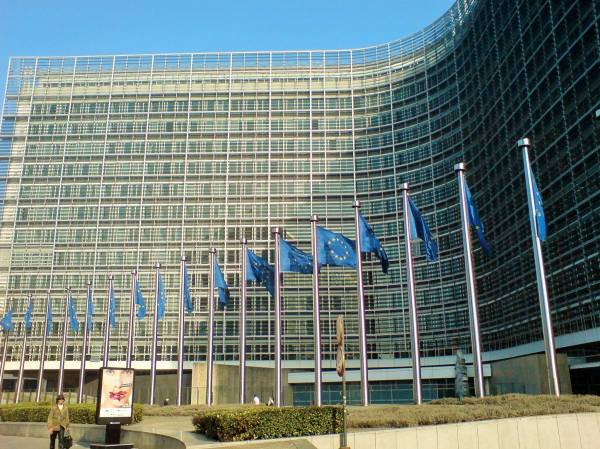Kamil Augustyniak
Every serious entity, e.g. international organization, state, council university etc., was founded and based on law and order. Since in the case of educational institution such establishment is relatively easy to accomplish, the nature of state or international organization is more complicated. There are various factors which make an agreement difficult to conclude. The best example of entity struggling with difficulties in a name of a common profit is the European Union which had to challenge its legal system in order to bring nations closer and introduced, almost impossible for many regions in the world, unified legal order for all Member States.
Enforcing European law
The European Union gathers diverse communities into one coherent body. By establishing comprehensive system of legal protection it is able to ensure security of its citizens and allow them to fully enjoy their rights. Since mentioned diversity occurs, sometimes there are problems with enforcing EU law. In order to come across Member States’ infringements the European Commission is on duty to act as “guardian of the treaties”. It means that, together with the Court of Justice of the European Union, they are responsible for making sure EU law is properly applied in all Member States. If it finds a failure to fulfill obligations (therefore not meeting its legal provisions), the Commission takes steps to make the situation right. First of all, it launches a legal process called the “infringement procedure” which involves sending to the government an official letter with explanation why the Commission considers this country is infringing EU law. If this procedure fails (after exceeding given deadline) the Commission refers the issue to the Court of Justice, which has power to impose penalties.
Infringement package – main decisions
Let’s put theory aside and move to practice. The European Commission, in its monthly package of infringement decisions, has summarized February 2015 actions against Member States which failed to fulfill obligations under EU law. It gave several important decisions to ensure proper application of EU law for the benefit of citizens and economies in Europe.

Source: http://www.med-health.net
European Commission refers Italy to the Court of Justice due to avoiding paying levies for overproduction of milk.[1] The Commission found infringement in Italian agriculture system and finally channeled the problem to the Court of Justice. In the period from 1995 to 2009 the situation in Italy remained unchanged – every year producers of milk exceeded given amount of milk and caused overproduction which forced the Italian state to paid the Commission supplementary due (EUR 2.305 billion). However, Italian authorities did not take any appropriate measures in order to exact fees from producers. According to the Commission, such situation threaten the market competitiveness and violates EU law, which clearly states that charges should be paid by producers who exceeded their individual milk quotas.
The Commission calls Germany to comply with the reference period when calculating the average weekly working time in German civil service. The European Commission has called Germany to comply the period referred to in Directive (2003/88/EC) on working time in the calculation of the average maximum weekly working time, in the case of civil servants. Under this Directive, employees are entitled to a reduction of average weekly working time to 48 hours in reference period up to four months. It means that employees can be required to work more than 48 hours in some weeks. However, German law provides such system for 12 month period. The Directive allows Member States to establish longer reference period in certain situations but even in such cases the period should not exceed 6 months. The only exception that allows to extend this period to 12 months is a collective consent. As long as German public service does not provide such, German law is in contrary to the directive on working time. The current request takes a form of a reasoned opinion under EU infringement procedure. Germany has two months to inform the Commission of the measures taken to adapt national legislation to EU law. Otherwise, the Commission can decide to refer Member State before the Court of Justice.
The Commission requests Greece, Portugal and Slovenia to comply with EU rules on Energy Efficiency Directive. Under the Directive (2012/27/EU) Member States are in duty to achieve energy savings in period from 1 January 2012 to 31 December 2020. The Directive had to be transposed into national law by 5 June 2014 and this is why a reasoned opinion has been sent to Greece and Portugal with request to notify the Commission of all their transposition measures for the Directive.

Source: http://www.eoi.es
If the EU law will not be properly adapted, the Commission can ask for financial sanctions for those Member States before the Court of Justice. What is more, Slovenia which has already transposed the Directive into national order is asked to submit a National Energy Efficiency Action Plan and long-term strategy for renovation of buildings in order to diminish wasting energy. Since Slovenia did not do meet a given deadline, the Commission’s request takes the form of a reasoned opinion. If Slovenia will not follow legal obligations within two months, the Commission can decide to refer it to the Court of Justice.
The Commission withdraws case against Poland for failing to transpose EU provisions.[2] In January 2011, the Commission sent a letter of formal notice to Polish government in order to clarify the situation in Polish law concerning the Renewable Energy Directive (2009/28/EC). The Directive goal is to ensure 20% share in renewable energy in the EU by 2020 and had to be fully transposed by Member States by 5 December 2010. Later on, in March 2012, the same institution delivered a reasoned opinion due to lack of sufficient measures done by Poland but the situation did not changed. As a result, in March 2013, the Commission referred the case to the Court of Justice for complete absence of transposition and charged Poland to EUR 133.228,80 for every day of delay. Since Poland notified the full transposition of the Directive on 29 January 2015, the Commission withdrew the case from the court.
Additional materials:
europa.eu/rapid/attachment/MEMO-15-4489/en/annex_table%20of%20February%20infringement%20package%20by%20country.pdf
[1] Read more: http://europa.eu/rapid/press-release_IP-15-4490_en.htm
[2] Read more: http://europa.eu/rapid/press-release_IP-15-4499_en.htm

